Search Results
Showing results 61 to 80 of 102
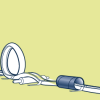
Thrill Ride
Source Institutions
In this activity, learners will build a roller coaster for a marble to run on using everyday household materials such as paper towel or toilet paper rolls, cups, boxes, books, buckets, chairs, etc.
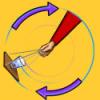
Up and Over
Source Institutions
This is an activity about Newton's First Law of Motion - a body in motion tends to stay in motion, or a body at rest tends to stay at rest unless acted upon by an outside force.
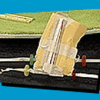
Puff Mobile
Source Institutions
In this engineering activity, challenge learners to design a car using only 3 straws, 4 Lifesavers™, 1 piece of paper, 2 paper clips, tape, and scissors.
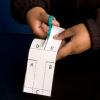
Make and Fly a Helicopter
Source Institutions
Learners follow the template to build and fly a paper helicopter.
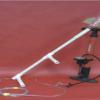
Handheld Water Bottle Rocket & Launcher
Source Institutions
In this activity, learners build handheld rockets and launchers out of PVC pipes and plastic bottles. Use this activity to demonstrate acceleration, air pressure, and Newton's Laws of Motion.
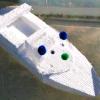
Rubber Band Boat
Source Institutions
In this activity, learners build styrofoam boats powered by twisted rubber bands.
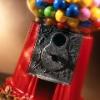
Interactive Gumball Machine
Source Institutions
In this activity, learners review the history of gumball machines and explore potential and kinetic energy, while working in teams to build a gumball slide.
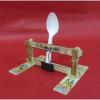
Catapult
Source Institutions
In this activity, learners build mini catapults using paint paddles and a spoon. Use this activity to introduce learners to forces and projectile motion.
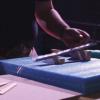
Chain Reaction II
Source Institutions
In this hands-on activity, learners use an assortment of (mainly household) items to complete Rube Goldberg-type challenges.
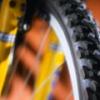
Give Me a Brake
Source Institutions
In this activity, learners explore the concept of how brakes can stop or slow mechanical motion.
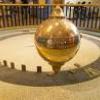
Magnetic Pendulum
Source Institutions
In this activity about magnetism (page 15 of the PDF), learners will explore how opposite and similar magnetic poles affect a swinging (pendulum) magnet.

Pop Fly
Source Institutions
In this design challenge activity, learners invent a way to send a Ping-Pong ball flying high enough to catch it - like football with a twist!
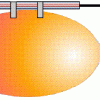
An Object in Motion
Source Institutions
In this physics activity (page nine of the pdf), learners use balloons to explore how a rocket works. It is suggested they also work to see how they can alter the velocity of the rocket.
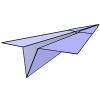
Paper Airplane Contest
Source Institutions
In this fun physics activity (page 9 of the pdf), learners take part in a paper airplane design challenge.
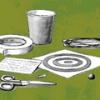
On Target
Source Institutions
In this design challenge activity, learners modify a cup so it can carry a marble down a zip line and also drop it onto a target.
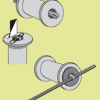
All Wound Up
Source Institutions
In this activity, learners build a racecar using only a rubber band, spool, straw, and paper clip! This racer is a classic toy that zips across a flat surface.
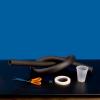
Build a Roller Coaster
Source Institutions
Learners design and build a roller coaster using simple materials. Learners experiment with potential and kinetic energy to get a marble to follow a track into a cup.
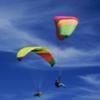
Playing with Parachutes
Source Institutions
In this activity, learners explore how parachutes are used to slow down moving objects. Learners work in teams of "engineers" to design and build their own parachutes out of everyday items.
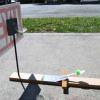
Parabola Basketball
Source Institutions
In this activity, learners build mini-basketball courts and explore the laws of physics. Learners discover that everything you throw or shoot on earth travels in a parabola.

Why do Hurricanes go Counterclockwise in the Northern Hemisphere?
Source Institutions
In this kinesthetic activity, learners will play a game with a ball to demonstrate the Coriolis force, which partly explains why hurricanes in the Northern Hemisphere rotate counterclockwise.
